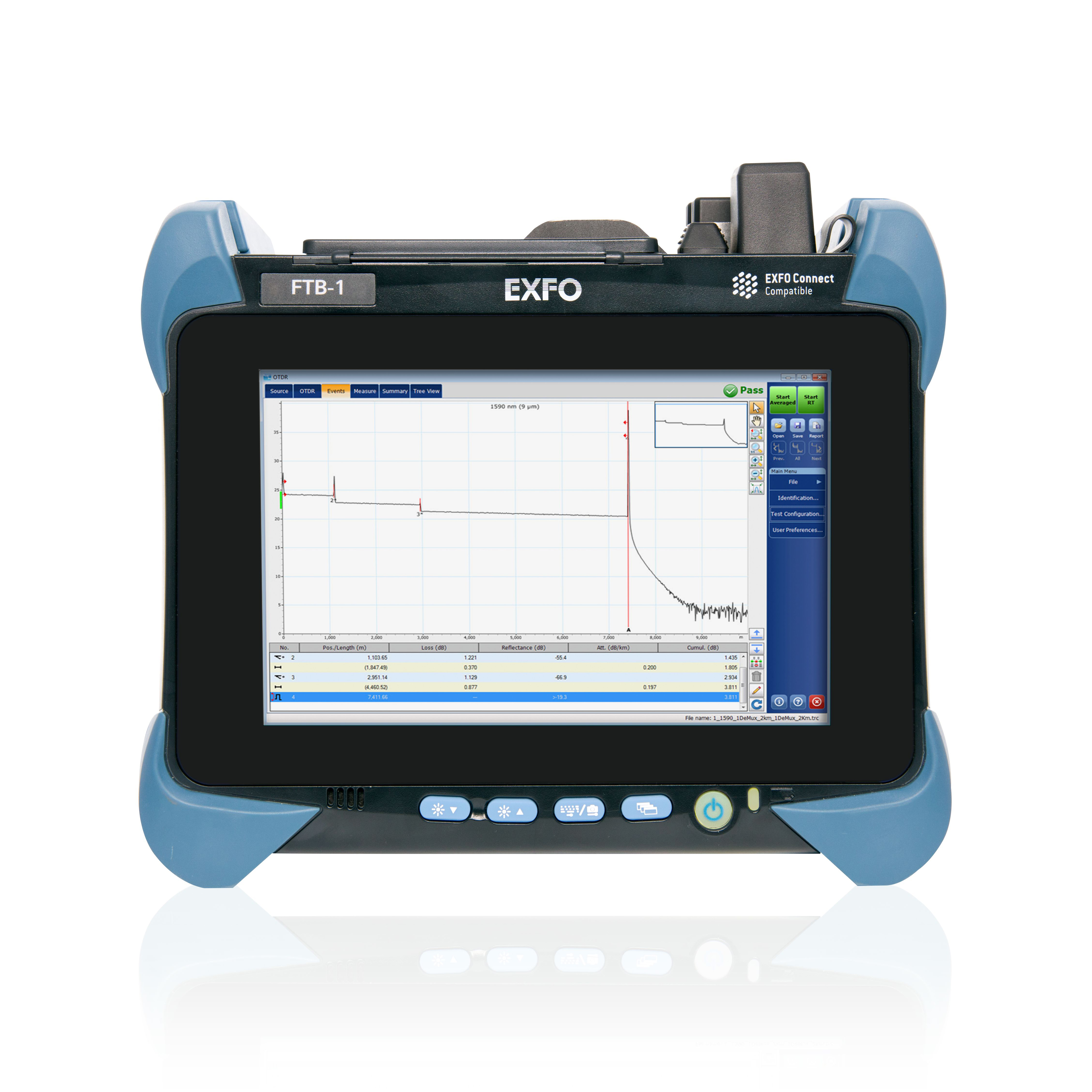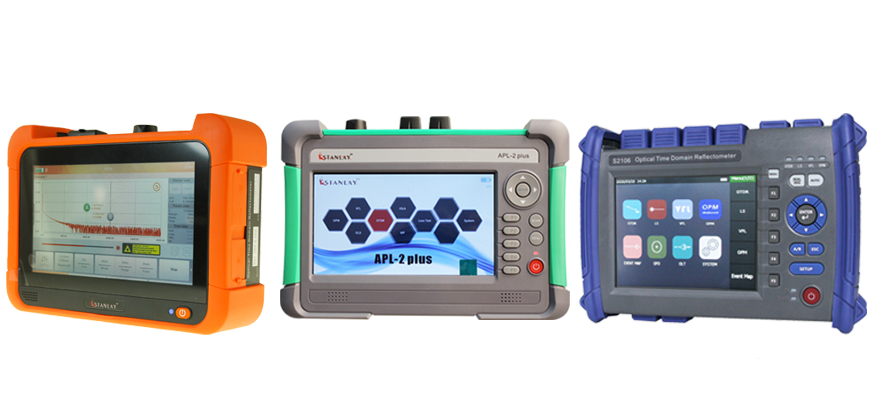Beginner’s Guide to fiber measurement in textile applications
Beginner’s Guide to fiber measurement in textile applications
Blog Article
A Comprehensive Guide to Optical Measurement System for Fiber Evaluation
When it pertains to fiber analysis, understanding optical measurement systems is important for assessing performance and making certain quality. You'll discover crucial strategies like interferometry and spectroscopy, which assist you determine essential parameters. There's more to it than simply these approaches; grasping depletion dimension techniques can greatly impact your network's performance. As you navigate with this guide, you'll uncover understandings that might transform your strategy to fiber optics.
Understanding Optical Measurement Systems
When you check out optical dimension systems, you'll find they're essential for evaluating fibers with precision. These systems make use of light to evaluate different features of fibers, including diameter, refractive index, and uniformity. By using methods like interferometry and spectroscopy, you can gain beneficial insights right into the fiber's properties.You'll find that these systems are developed to lessen errors and enhance accuracy, guaranteeing trusted data for your evaluation. Various setups, such as single-mode and multi-mode systems, deal with particular fiber types, enabling you to choose the most effective fit for your needs.Moreover, the combination of advanced software program tools helps you interpret the data effectively, making it much easier to recognize any incongruities or problems. As you check out deeper into these measurement systems, you'll value how they improve the logical process and enhance the total quality of fiber manufacturing and screening.
Trick Specifications for Fiber Evaluation
Trick specifications for fiber evaluation play an important role in identifying the high quality and efficiency of fiber optics. When you evaluate a fiber, you'll desire to concentrate on characteristics such as depletion, transmission capacity, and modal diffusion. Depletion determines the loss of signal stamina as light travels via the fiber. A lower attenuation value indicates far better top quality and longer transmission distances - fibre testing equipment.Bandwidth refers to the data-carrying capacity of the fiber and is important for high-speed communication. You'll need to evaluate the data transfer to ensure it fulfills your application requirements. Modal dispersion, which develops from the various speeds at which light journeys with numerous settings in multimode fibers, impacts signal clarity
Methods for Depletion Measurement

Transmission capacity and Its Influence On Efficiency
Comprehending bandwidth is crucial for enhancing fiber efficiency, as it straight influences the quantity of data that can be sent over a network. Higher transmission capacity implies you can send out more details all at once, permitting faster interaction and better total performance. When you're working with fiber optics, it's important to consider exactly how bandwidth connects with fiber characteristics, such as core dimension and product properties.If the transmission capacity is restricted, you might experience data loss or slower speeds, influencing your applications. Additionally, different kinds of fibers can sustain differing data transfer degrees, so it is necessary to select the appropriate fiber for your specific needs.You ought to additionally maintain in mind that environmental variables, like temperature and external interference, can influence transmission capacity. By understanding these elements, you can make informed decisions to improve your fiber optic systems, ensuring trustworthy and reliable data transmission.
Refractive Index Measurement Methods

Overall Internal Reflection
Total inner representation (TIR) functions as a basic concept for measuring the refractive index of fibers. When light trips from a denser medium to a much less thick one, it can only be totally shown if the angle of incidence surpasses a particular limit, understood as the crucial angle. This sensation enables you to my explanation determine the refractive index by assessing the angles at which light shows or refracts. By making use of a configuration that directs light into a fiber and gauges the resulting angles, you can determine the refractive index properly. Comprehending TIR not just improves your fiber evaluation but additionally improves the style and efficiency of optical systems. So, leveraging TIR can cause more efficient fiber-based applications.
Interferometric Methods
Structure on the concepts of total internal reflection, interferometric methods supply an effective methods for measuring the refractive index of fibers with high precision. These techniques make use of the disturbance patterns developed when beams split and recombine after traveling different paths. You can use setups like the Michelson or Mach-Zehnder interferometer to evaluate phase changes brought on by adjustments in refractive index. By meticulously adjusting your system and analyzing the resulting fringes, you can determine the refractive index with amazing accuracy. It's important to preserve steady environmental conditions to reduce errors. With these techniques, you'll improve your understanding of fiber properties, leading to better efficiency in numerous applications, from telecoms to sensor technology.
Modal Dispersion and Its Importance
Modal dispersion describes the dispersing of light pulses as they travel through a fiber, which can impact the total efficiency of the system. You'll see that this phenomenon can result in signal distortion, affecting information transmission prices and high quality. Understanding its value is crucial for maximizing fiber optic styles.
Definition of Modal Diffusion
In fiber optics communications, modal diffusion plays a substantial function in determining signal top quality and transmission speed. It occurs when various light modes take a trip at varying rates with the fiber. Because each setting has unique courses and attributes, they can reach the receiving end at various times. This time distinction can result in signify spreading and distortion, which can degrade the general efficiency of the interaction system. You might run into modal dispersion largely in discover this multimode fibers, where the several courses of light intensify the concern. Understanding modal diffusion is vital for optimizing fiber styles and ensuring that your communication systems run efficiently, keeping the integrity of the transmitted signals over longer distances.
Results on Fiber Performance
Comprehending modal diffusion helps highlight its impacts on fiber performance. This phenomenon happens when various modes of light traveling at differing rates within the fiber, leading to signify dispersing gradually. As you assess fiber optics, you'll discover that increased modal diffusion can significantly weaken signal top quality, resulting in minimized transmission capacity and longer transmission distances. In useful terms, this suggests your information can arrive distorted or delayed, impacting general interaction performance. To mitigate these effects, you may think about making use of single-mode fibers, which decrease modal diffusion. By selecting the right fiber kind and understanding exactly how modal dispersion influences efficiency, you can improve transmission quality and warranty dependable data transfer in your optical measurement systems.
Tools and Technologies for Optical Measurements
When it concerns optical dimensions, several innovative tools and innovations go to your disposal to improve fiber analysis. You'll discover fiber optic testers, which assess signal quality and performance, important for maintaining optimal network efficiency. Optical time-domain reflectometers (OTDRs) are important for situating mistakes and determining loss over ranges, giving thorough understandings into fiber integrity. Additionally, spectrometers can evaluate light spectra, aiding you recognize product buildings and composition.Don' t forget the value of imaging systems, like digital microscopes, that allow you to aesthetically check fiber surfaces for issues. Think about using polarization analyzers to gauge tension and pressure in fibers, which is essential for comprehending their actions under different conditions. By leveraging these devices and innovations, you can significantly boost your fiber analysis processes, guaranteeing integrity and high performance in your optical networks.
Regularly Asked Concerns
What Are the Prices Connected With Optical Measurement Solutions?
The prices related to optical dimension systems can vary greatly. You'll need to review equipment rates, maintenance charges, software program licenses, and possible training expenses. Budgeting very carefully will help you prevent unanticipated financial difficulties down the line.

Exactly How Commonly Should Fiber Evaluation Be Done?
You must execute fiber evaluation consistently, typically every 6 months or after significant changes in the environment (optical measurement system). This guarantees perfect performance and helps identify possible concerns prior to they influence your system's performance and integrity
Can Optical Measurement Solutions Be Calibrated in the house?
Yes, you can calibrate optical measurement systems in the house, yet it requires precision. Make sure you adhere to the supplier's guidelines, make use of suitable calibration criteria, and confirm your results to assure accuracy in your measurements.
What Industries Generally Utilize Optical Measurement Equipments?
You'll locate optical measurement systems extensively used in markets like telecommunications, production, health care, and research. They're important for top quality control, fiber evaluation, and making sure exact dimensions in various applications, enhancing effectiveness and precision across sectors.
Exist Any Security Worry About Optical Measurement Systems?
Yes, there are safety and security interest in optical dimension systems. You need to constantly use safety eyeglasses to secure your eyes from intense lights and assurance correct training to deal with devices safely and prevent crashes.
Report this page